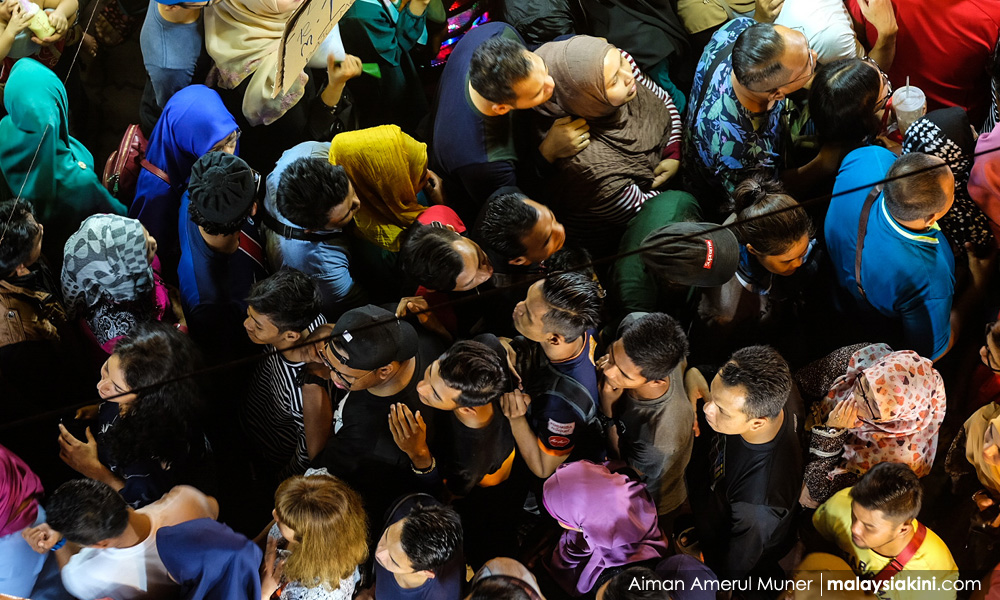COMMENT | Malaysia is in need of a serious economic revamp – not that it has failed completely, but the world is moving at warp speed. Since the dawn of the internet in mid-1990s, Malaysia has been playing catch up.
If Malaysia focuses too excessively on the racial distribution of wealth as provided by the New Economic Policy, under which the bumiputera are entitled to a 30 percent corporate stake, then this policy may not lead us right to the watering hole when so many breakthroughs and economic disruptions are happening at exceptional speed.
If anything, Malaysia needs to put more spending on research and development with a focus to create equitably shared prosperity. This is needed to assuage the demography of Malaysia and the delicate racial balance.
With 65 percent of the demography being Malays, any achievement in science and technology or through foreign direct investment has to ensure the ability of the Malays not to dominate or stick a hand into the economic pie, but to grow together.
Only a pro-growth economic agenda based on equitably shared prosperity can redeem Malaysia, by allowing the state and private sector to work closely. Without a strategic and philosophical economic framework of sharing wealth across all races, the country can yet regress into its own racial silos.
Between 1990 and 2018, Malaysians, except the very rich, gained little.
Income from the manufacturing sector, for example, has been on the decline, which may be due to the over-reliance on cheap foreign labour which further depresses the cycle of Malaysian wages.

As things stand, more than 90 percent of each ethnic group does not have any liquid savings, and would not be able to survive more than a few months if they lose their source of income or employment.
This is not a very pleasant picture, even if it is colour blind. Why?
The danger lies in the ticking time bomb that cuts across all races and groups. When the income chasm widens, people tend to blame one another for their problems which in turn accentuates social, political, religious and racial tensions.
Widespread disempowerment
While democracy can ameliorate the tensions, it cannot overcome them completely. When democracy cannot structurally and systematically solve them, all sorts of religious and ideological fancies might rise to plug the policy gaps. When they do so, inter and intra-ideological or religious pressures will only become more acute.
A bad economy will skew a political party's fate, including Bersatu's, especially if it morphs into some kind of Umno 2.0 that is well-larded with cash, corruption and connections.
In any case, widespread disempowerment is a phenomenon that should not be happening if the state and the market have vouched to work in tandem to help the poor – as reflected in the NEP and its derivatives.
Thus, there is a need to focus on the strengths and flaws of the NEP with the goal of producing an equitably shared prosperity scheme across the country.

But although Malaysia, on the whole, is becoming richer, the income differentials of Malaysians are growing wider. The lethal brew of myriad income determinants and gangly systems of the income distribution have conspired to render the middle and working classes disempowered.
Statistics from EPF show that 92 percent of the people are earning less than RM6,000 a month; four out of 10 Malaysians have no pensions at all; close to 40 percent earn less than RM3,000 per month; 25 percent of Malaysians have no properties to their names and the money that pilgrims save is spent entirely on the hajj, leaving their children with nothing to draw on.
Indeed, half of Malaysians earn below RM2,000 a month. And close to 113,000 settlers in Felda across all 54 parliamentary constituencies are not doing that great, with close to one-third of them needing financial assistance to the tune of RM800-RM1,000 a month.
More importantly, it is estimated that there were only 150,000 interracial marriages in Malaysia, a small figure for a population of 28 million.
Wealth, or, the lack of it, tends to have the same clustering effects in one group and one race when there are no interracial marriages or interracial unity.
This is why equitably shared prosperity must have an interracial structure of distribution driven into it.
RAIS HUSSIN is a supreme council member of Bersatu. He also heads its policy and strategy bureau.
The views expressed here are those of the author/contributor and do not necessarily represent the views of Malaysiakini.

